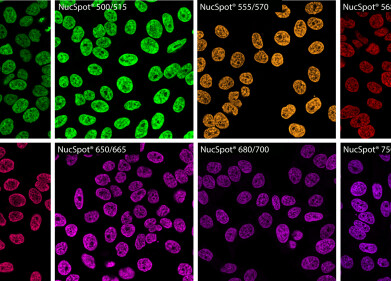Microscopy & Microtechniques
Are Marathons Bad for Your Health?
May 24 2017
Considered the crème de la crème of athleticism, marathons push the body to its extreme. They’re considered a calorie crushing workout, but now scientists are warning runners that marathons may not be as healthy as they appear. In fact, they could have serious long-term consequences for the body.
After studying the physical effects of marathons, researchers found that 80% of competitors suffered post-race kidney injuries. While most of the runners recovered from their injuries within two days, the findings raised questions over the potential long-term impact for those who compete regularly. The findings were published by the American Journal of Kidney Diseases, and serve as food for thought for the thousands of competitors that are gearing up for next month’s London Marathon.
80% of runners develop AKI
Led by Yale University’s Professor Chirag Parikh, the team studied a small group of participants who competed in the 2015 Hartford Marathon. They collected blood and urine both before and after the event, and trawled samples for a variety of tell-tale kidney injury signs. Specifically, they analysed serum creatinine levels, kidney cells on microscopy and proteins in urine. The results were alarming, with 82% of runners diagnosed with Stage 1 Acute Kidney Injury (AKI) after competing. The condition sees the kidneys fail to filter waste from the blood, which can trigger chronic renal failure or end-stage renal disease.
Parikh explains, "The kidney responds to the physical stress of marathon running as if it's injured, in a way that's similar to what happens in hospitalised patients when the kidney is affected by medical and surgical complications."
Hot and bothered
So, what’s causing mass kidney failure? One of the potential is a sustained rise in core body temperature, which can lead to dehydration and decreased blood flow to the kidneys. Given the sheer physical stress of marathons, even regular water stops can’t save the body from dehydration.
Competitors did enjoy a fast recovery, though Parikh stresses that the findings reflect the need to investigate the impact of marathons further.
The human body is incredibly hardy, but it’s not invincible. That’s why it’s so important that the medical industry continues to grow and evolve. Spotlighting the UK’s advanced synchrotron facility, ‘JEOL TEM at Diamond’s Electron Physical Sciences Imaging Centre (ePSIC)’ offers a fascinating glimpse at how electrons are accelerated to near light speed, then directed as ‘beamlines’ into laboratories at the Harwell Science and Innovation Campus.
Digital Edition
Lab Asia 31.6 Dec 2024
December 2024
Chromatography Articles - Sustainable chromatography: Embracing software for greener methods Mass Spectrometry & Spectroscopy Articles - Solving industry challenges for phosphorus containi...
View all digital editions
Events
Jan 22 2025 Tokyo, Japan
Jan 22 2025 Birmingham, UK
Jan 25 2025 San Diego, CA, USA
Jan 27 2025 Dubai, UAE
Jan 29 2025 Tokyo, Japan



















